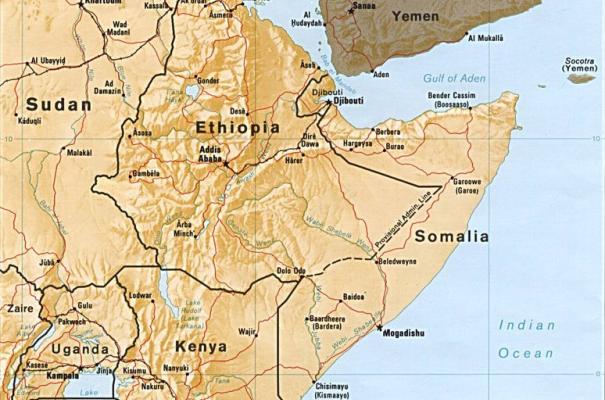The Gulf State Expansion to Eritrea and Ethiopia's Concern
 Add to it the Qatari soldiers that have already been present on the ground for a few years to “mediate” the border dispute with Djibouti, and the most important members of the Gulf Cooperation Council (GCC) have unexpectedly converged in what many might think to be among one of the most unlikeliest of places. While it may have been difficult to foresee this happening, in hindsight it actually makes quite a lot of sense, and contrary to the conventional assessment that this is about Yemen, the argument can be made that it’s also just as much about Ethiopia as well. Unbeknownst to many, Qatar is the “ox driving the cart” in this case, and whether they like it or not, the rest of the GCC states will be reluctantly forced to follow its destabilizing lead if. Doha decides to throw Ethiopia into chaos.
Add to it the Qatari soldiers that have already been present on the ground for a few years to “mediate” the border dispute with Djibouti, and the most important members of the Gulf Cooperation Council (GCC) have unexpectedly converged in what many might think to be among one of the most unlikeliest of places. While it may have been difficult to foresee this happening, in hindsight it actually makes quite a lot of sense, and contrary to the conventional assessment that this is about Yemen, the argument can be made that it’s also just as much about Ethiopia as well. Unbeknownst to many, Qatar is the “ox driving the cart” in this case, and whether they like it or not, the rest of the GCC states will be reluctantly forced to follow its destabilizing lead if. Doha decides to throw Ethiopia into chaos.
The research expands on the briefing first laid out by South Front and should be seen as a continuation of their original work. It begins by setting the context for what’s been going on along the Horn of Africa lately and how the GCC’s military advances fit into the larger context of recent history. The piece then investigates the levers of influence for how Qatar could destabilize Ethiopia as well as its radical ideological motivations for doing so. Finally, the article concludes with a scenario study of how Qatar could engineer an Unconventional War to bring down Africa’s next up-and-coming power.
The Horn of Africa is one of the most geostrategic regions in the world due to its location along the Bab-el-Mandeb strait that connects the Gulf of Aden with the Red Sea. In a broader context, one can say that it’s one of two maritime chokepoints (the other being the Suez Canals) that link Europe with South, Southeast, and East Asia, and until the Northern Sea Route becomes operable sometime in the next decade, all sea-bound trade between the EU and these corners of Eurasia must transit through its narrow passage. As could be expected, this makes control over the strait a heightened prize for any power or combination thereof, and it’s not for naught that most Great Powers scrambled their navies to the region over the past decade ostensibly to “combat piracy”.
What was really happening was that the US was trying to militarize the waterway under the auspices of countering “Somali pirates”, which it must be reminded, were bogeymen that were blown completely out of proportion by the Western mainstream media for premeditated geopolitical ends. The US wanted to create the conditions where the rest of the world would accept the continuous presence of its fleet operating in these strategic international waters, but precisely because their legal status, it meant that any other fleet could do the same thing on identical grounds, which is exactly what happened. While the UK and French navies were obviously there to support their American ‘big brother’, Russia, China, India, and Iran also sailed their ships there too, but for the purpose of both watching the West and symbolically showing that they won’t allow NATO to completely control this space.
